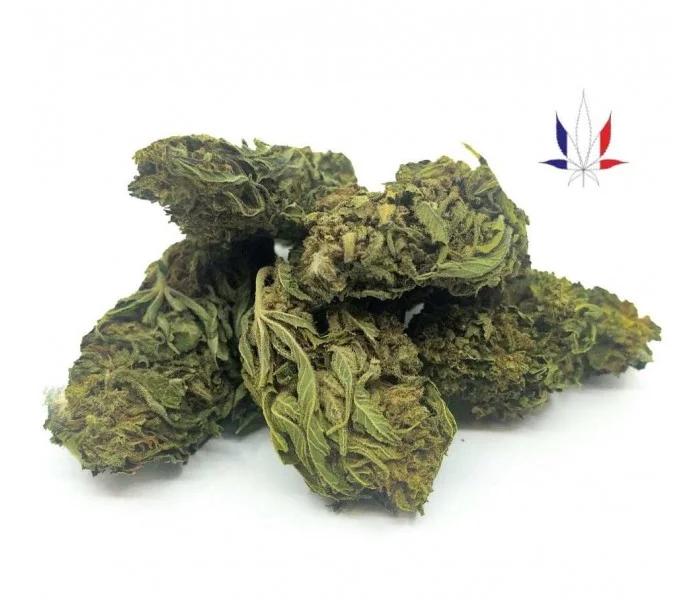As society continuously evolves, so too do our perceptions of substances once deemed taboo. Among these, cannabis—often colloquially known as weed—stands at a crossroads of cultural acceptance and health scrutiny. With a growing number of jurisdictions legalizing its use for both medicinal and recreational purposes, the conversation surrounding cannabis is more vibrant than ever. Yet, as research unravels its complex effects on the human body and mind, the question persists: Is weed bad for your health? This inquiry invites us to explore the multifaceted relationship between cannabis and wellness, examining both its potential benefits and risks, through an evidence-based lens. Join us as we navigate the intricate landscape of cannabis consumption, seeking clarity amidst the haze of controversy.
Table of Contents
- Understanding the Potential Health Risks of Cannabis Use
- The Impact of Cannabis on Mental Health and Cognitive Function
- Navigating the Relationship Between Cannabis and Physical Well-Being
- Recommendations for Responsible Use and Harm Reduction Strategies
- Q&A
- Concluding Remarks
Understanding the Potential Health Risks of Cannabis Use
While cannabis is often touted for its medicinal benefits, it’s essential to recognize that its consumption may not come without potential health risks. Short-term effects can include altered senses, impaired memory, and difficulties in problem-solving. Additionally, some individuals may experience anxiety or increased heart rate, which can be particularly concerning for those with pre-existing heart conditions. Over time, habitual use may lead to issues such as addiction, respiratory problems, and cognitive deficits, especially in younger users whose brains are still developing.
Moreover, the legal status and quality control of cannabis products can vary significantly, posing further risks. Users may inadvertently consume products with added chemicals or contaminants, leading to unexpected health complications. To better understand these risks, consider the following potential health impacts:
| Health Risks | Description |
|---|---|
| Respiratory Issues | Smoking cannabis can lead to chronic bronchitis and damage lung function. |
| Cognitive Impairment | Long-term use may affect memory, attention, and learning abilities. |
| Mental Health Disorders | Increased risk of anxiety, depression, and schizophrenia in predisposed individuals. |
| Addiction | Regular users may develop a dependence on cannabis. |
The Impact of Cannabis on Mental Health and Cognitive Function
Cannabis, often perceived as a recreational substance, harbors a complex relationship with mental health that’s garnering increasing attention from researchers and the public alike. While some users report feelings of relaxation and relief from anxiety, others experience heightened anxiety and paranoia in response to the same substance. The variability in these effects can be linked to factors such as individual biology, dosage, and the specific cannabinoids present in the cannabis being consumed. Notably, high-THC strains might exacerbate anxiety in susceptible individuals, whereas CBD-rich varieties are often highlighted for their potential anxiolytic properties.
Cognitive functions also exhibit a duality influenced by cannabis usage. Some studies indicate potential impairments in memory and attention among regular users, particularly in younger populations whose brains are still developing. On the other hand, emerging research hints at possible neuroprotective benefits of cannabinoids, suggesting that certain compounds may mitigate cognitive decline associated with aging or neurodegenerative diseases. Here’s a summary of the potential impacts:
| Potential Benefits | Potential Risks |
|---|---|
| Reduced anxiety | Increased anxiety |
| Potential cognitive protection | Memory impairment |
| Improved mood | Psychosis risk |
Navigating the Relationship Between Cannabis and Physical Well-Being
In recent years, the conversation around cannabis and its effects on physical health has evolved significantly, encouraging many to delve into its potential benefits as well as drawbacks. Advocates highlight its use in managing chronic pain, alleviating inflammation, and reducing anxiety. Research has shown that certain compounds in cannabis, particularly cannabinoids like CBD, can interact positively with the body’s endocannabinoid system, leading to enhancements in overall wellness. However, it’s crucial to recognize that effects can vary significantly from person to person, influenced by factors such as dosage, method of consumption, and individual health status. Some common aspects to consider include:
- Potential therapeutic benefits: Pain management, anti-inflammatory properties, and relaxation.
- Possible side effects: Impaired cognitive function, increased heart rate, and dependency issues.
- Consumption methods: Smoking, vaping, edibles, and tinctures, each with different health implications.
Moreover, it’s essential to approach cannabis use with a well-informed mindset. Many experienced users suggest starting with low doses and gradually increasing as needed, monitoring one’s body response closely. Balancing the benefits against potential risks can be made easier by keeping a record of experiences, helping individuals understand their personal limits. In the broader context of health, here are some factors that can contribute to a safer cannabis experience:
| Factor | Consideration |
|---|---|
| Strain Type | Choose between indica, sativa, or hybrid based on desired effects. |
| Dosing | Start low and go slow to gauge effects on your body. |
| Setting | Use in a comfortable and safe environment to enhance relaxation. |
Recommendations for Responsible Use and Harm Reduction Strategies
Engaging with cannabis, like any substance, requires an informed and cautious approach. It’s crucial to recognize individual differences in how people respond to marijuana, which underscores the importance of moderation and self-awareness. If you choose to use weed, consider following these guidelines for a more responsible experience:
- Know Your Strain: Different strains can have various effects—some may enhance relaxation while others might induce anxiety.
- Start Low and Go Slow: Begin with a small amount and gradually increase your intake to gauge your body’s reaction.
- Stay Hydrated: Drinking water can help mitigate some side effects, such as dry mouth.
- Select Safe Settings: Use cannabis in comfortable environments with trusted companions to alleviate potential anxiety.
Furthermore, staying informed about cannabis legality and its potential interactions with medications is vital. Here’s a simplified table delineating some common strategies for harm reduction:
| Strategy | Description |
|---|---|
| Use Alternatives | Consider edibles or oils that may provide a more controlled experience. |
| Limit Frequency | Establish specific days for use to prevent habitual dependency. |
| Consult Professionals | Seek advice from healthcare providers about potential health impacts. |
Q&A
Q&A: Is Weed Bad for Your Health?
Q1: What is cannabis, and how is it typically consumed?
A: Cannabis, often referred to as weed, is a plant containing various chemical compounds, primarily cannabinoids like THC and CBD. People consume cannabis in various ways, including smoking, vaping, edibles, tinctures, and oils. Each method can affect the body differently, contributing to the ongoing debate about its health implications.
Q2: What are the potential health benefits of cannabis?
A: Cannabis has shown promise in relieving chronic pain, reducing inflammation, managing anxiety, and aiding sleep disorders. Some studies suggest that CBD, a non-psychoactive component, may offer therapeutic benefits without the ‘high.’ Additionally, certain formulations are being researched for potential use in treating epilepsy and multiple sclerosis, among other conditions.
Q3: Are there any known risks associated with cannabis use?
A: Yes, cannabis use is not without its risks. Regular consumption can lead to dependency in some individuals, especially when high-THC strains are used. Mental health issues, such as increased anxiety or paranoia, may arise, particularly in those predisposed to such conditions. There’s also concern about the effects of long-term use on memory, motivation, and cognitive function.
Q4: How does cannabis affect physical health?
A: Cannabis can have both positive and negative effects on physical health. While some users report relief from pain and inflammation, smoking cannabis can harm lung health similar to tobacco smoke. Moreover, other risks include elevated heart rate and blood pressure. It’s crucial to be mindful of personal health conditions that may interact negatively with cannabis.
Q5: Is cannabis addictive?
A: Cannabis can be addictive for some individuals; research indicates that about 9% of users may develop a dependency. This rate increases for those who start using cannabis at a young age or consume it frequently. Withdrawal symptoms, although less severe than those of other substances, can include irritability, insomnia, and cravings.
Q6: What about the legal status of cannabis and its implications for health?
A: The legal status of cannabis varies widely across regions, affecting research, access, and public perception. In places where cannabis is legalized, access to regulated products has led to better understanding of dosages and strains. However, illegal markets may pose health risks due to unregulated products and unknown additives.
Q7: Are there age restrictions for cannabis use, and why do they matter?
A: Most jurisdictions impose age restrictions for cannabis use, typically setting the minimum at 18 or 21. This is based on research showing that cannabis use during adolescence can impact brain development, potentially leading to long-term cognitive and emotional issues. Responsible adult use, informed by medical advice, is encouraged wherever cannabis is legal.
Q8: Conclusion—Should I be worried about cannabis for my health?
A: Whether cannabis is ‘bad’ for your health largely depends on individual circumstances—such as personal health conditions, frequency of use, and the specific products consumed. For some, the benefits may outweigh the risks, while for others, the inverse may be true. A thoughtful, informed approach, ideally with healthcare guidance, is the best way to navigate cannabis use and its health implications.
Concluding Remarks
In the grand tapestry of health debates, the question of whether weed is bad for your health is woven with complexity and nuance. As we’ve explored the multifaceted effects of cannabis, it becomes clear that the answer is not a simple yes or no. The impact of weed varies from person to person, shaped by factors such as frequency of use, individual health conditions, and social context. While some research highlights potential risks, particularly for vulnerable populations, others point to therapeutic benefits that can enhance quality of life.
As we navigate the evolving landscape of cannabis research and policy, it’s essential to approach the topic with an open mind and informed judgment. Ultimately, understanding the dual nature of weed—both its potential benefits and drawbacks—enables us to make choices that prioritize our health and well-being. Whether you’re a casual user, an advocate, or simply curious, the journey towards informed decisions about cannabis is one worth taking. As we continue to unravel the mysteries of this ancient plant, we invite you to reflect, research, and engage in conversations that shape our perceptions and policies surrounding cannabis use. The conversation doesn’t end here—it is just the beginning.



